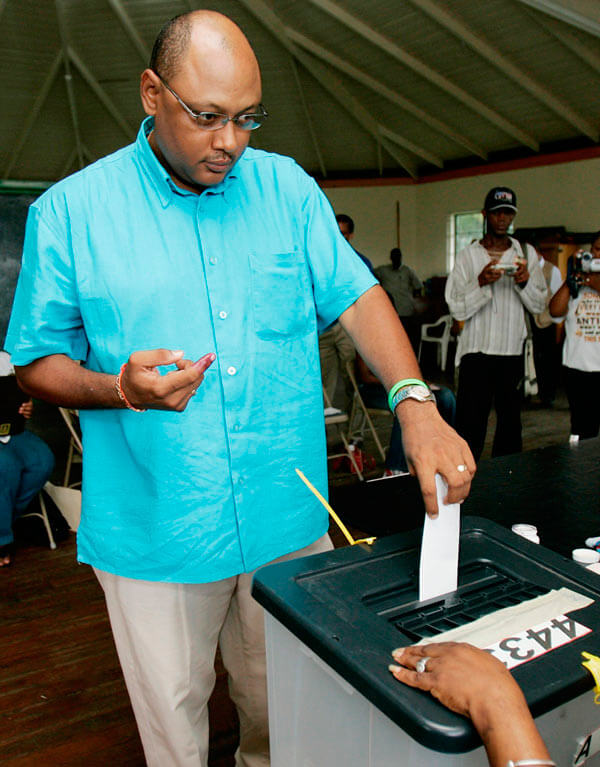Now that Guyana’s oil and gas basin has been deemed as one of the hottest and most exciting prospects in the world, Shell Oil has to be regretting its decision to withdraw as an investment partner with United States giant ExxonMobil, which has so far drilled six successful wells offshore Guyana worth about 3.2 billion barrels of oil, officials said Monday, Jan. 29.
Minister of Natural Resources Raphael Trotman said Exxon’s mid 2015 “world class” oil and gas find has clearly taken away all the fears and apprehensions about wasting investor dollars exploring offshore Guyana and Shell is one company which has missed out on the chance to cash in on one of the world’s largest oil finds in more than a decade. Exxon plans to begin producing about 120,000 barrels of oil daily in early 2020. This will make Guyana the largest producer in the Caribbean Community. The others are Trinidad, Suriname and Barbados.
“Shell was with Exxon on the Stabroek block and pulled out. They now maybe rue the day that they ever did that. Now, Shell has signaled that it wants to come back to Guyana,” Trotman noted, saying that all the major oil and gas companies in the world are either vying for their own offshore blocs or buying into smaller companies which have deep water concessions near Exxon’s highly successful offshore fields.
Exxon spokeswoman Kimberly Brasington Monday confirmed that Shell was the original partner with Exxon in the six million acre-plus concession area after Exxon had signed its exploration agreement with Guyana back in 1999 “but chose to pull out. They made the decision not to take the risk. We therefore had to go out there and look for new partners in Hess Oil and Nexen (of China). Yes that was indeed the case,” she said.
Geology and Mines Commissioner Newell Dennison said Shell pulled out about a decade ago and has been sending signals about coming back into the basin but he has seen no paper work regarding this so far.
Exxon and its partners plan to drill 17 wells in the first phase of their offshore venture and up to 40 others ion phase two. The company has already filed paperwork for permission to begin preparations for phase two of its offshore operations and has begun public consultations about this phase.
Spain’s Repsol, Tullow Oil of the United Kingdom, Chevron, Brazil’s Petrobras, Eni of Italy, TOTAL of France and British Petroleum are among big oil players all vying for participation in the country’s fledgling oil and gas sector.
“These companies are only expressing interest because ExxonMobil has de-risked the basin. Zero from zero is nothing. If you have oil and no one is troubling it, then it is worth zero. The oil may be worth a lot, but only if it is produced. We are moving to production, but it took ExxonMobil to find what others have been looking for,” Trotman said.



























